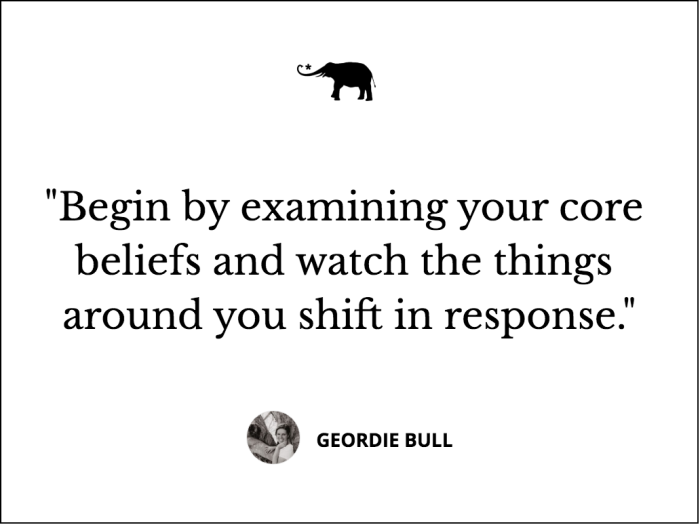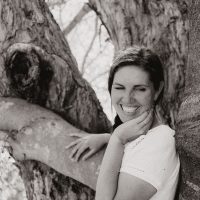View this post on Instagram
A while back, I was walking down the street and saw a friend approaching from the opposite direction.
I knew she had seen me, but as I walked toward her, she crossed the street.
Immediately, I felt shame and anxiety in my throat and solar plexus. Anxious thoughts circulated in my mind, and my mood plummeted, causing me to be distant and vaguely rude to the people I encountered for the rest of the morning. I returned home feeling like a friendless loser.
How did I allow such a seemingly benign event to disrupt my life?
Knowing what I know now as a result of studying the unconscious mind, it’s clear that this event triggered an unconscious process that was created early in my life.
Outside of my awareness, I had coded my friend crossing the street as “she doesn’t like me,” which quickly kicked off a thought that has been familiar to me for as long as I can remember: “No one likes me.”
After this incident, I ran everything I experienced for the next few hours through the filter of “No one likes me.” The shop assistants seemed cold. People I passed appeared to grimace. The world felt unsafe, and I behaved like someone living in an unsafe world, anxious and armoured. The incident literally ruined my day.
Your unconscious mind wants to keep you safe
Chances are, you’ve experienced an incident like this where a seemingly small event destroyed your mood and you ended up writing it off as a “bad day.”
The unconscious part of our mind is like a personal bodyguard that protects us according to the core beliefs it has stored in its files. If one of our core unconscious beliefs is, “No one likes me,” we will feel all the shame and anxiety associated with such a painful belief and unconsciously act in ways that reinforce it.
Believe it or not, our unconscious mind is actually trying to protect us through all of this. If our mind is coded to see a friend crossing the street as evidence that no one likes us, anxiety and shame are internal strategies for self-protection. Just as a sore produces a protective scab, our inner wounds are protected by the armour of hypervigilance and self-criticism.
So how do we change the coding?
Imagine how you would rather think, feel, and act
Without consciousness, thoughts like “No one likes me” remain unquestioned in the unconscious mind where they continue to produce anxious, bad-feeling thoughts and the resulting moods and behaviours. In short, nothing changes.
With consciousness, these core beliefs can be examined and flipped, allowing us to select our own thoughts, behaviours, and feelings in triggering situations. This requires imagination.
Here’s how I changed my triggering event into an opportunity for growth:
1. I imagined all the possibilities for my friend crossing the street. She could have been busy, feeling low, not wanting to make small talk, or running late—all things I had felt myself at times.
These new thoughts softened the emotional charge in my body, freeing up space to choose how I wanted to react.
2. I also imagined the worse-case scenario—that my friend didn’t like me anymore and explored the different thoughts I could have around that; for example, how important is it to be liked? Is it possible to be disliked and happy? What freedom might I find if I was comfortable with being disliked?
These thoughts made me feel free and empowered.
3. Then I examined how I wanted to feel: light, free, soft, alive, vibrant, and connected to the present.
4. I subsequently explored how I wanted to behave and pictured myself giving the shop assistants and anyone else I met on my errands my full attention, filling them up with kindness and connection. I focused on doing this, which produced a positive response and kicked off an elevated mood. Transformation complete!
Practice makes possible
After this incident, I practiced playing with new thoughts, emotions, and behaviours every time I felt hurt or triggered. Gradually, my anxiety began to soften, and I felt an increasing sense of freedom and possibility.
Building imagination around how we respond to triggers—both small and large—creates tiny shifts that snowball over time into huge transformations.
Rome wasn’t built in a day, and neither will a beautiful, new world be built without people who have first imagined and then built a new way of being into their internal experience, one beautiful thought after another.
This is what being the change you want to see in the world means. Begin by examining your core beliefs and watch the things around you shift in response.
~









Read 0 comments and reply